Playing Albert Hirschman on Transatlantic Changed Lucas Englander's Life
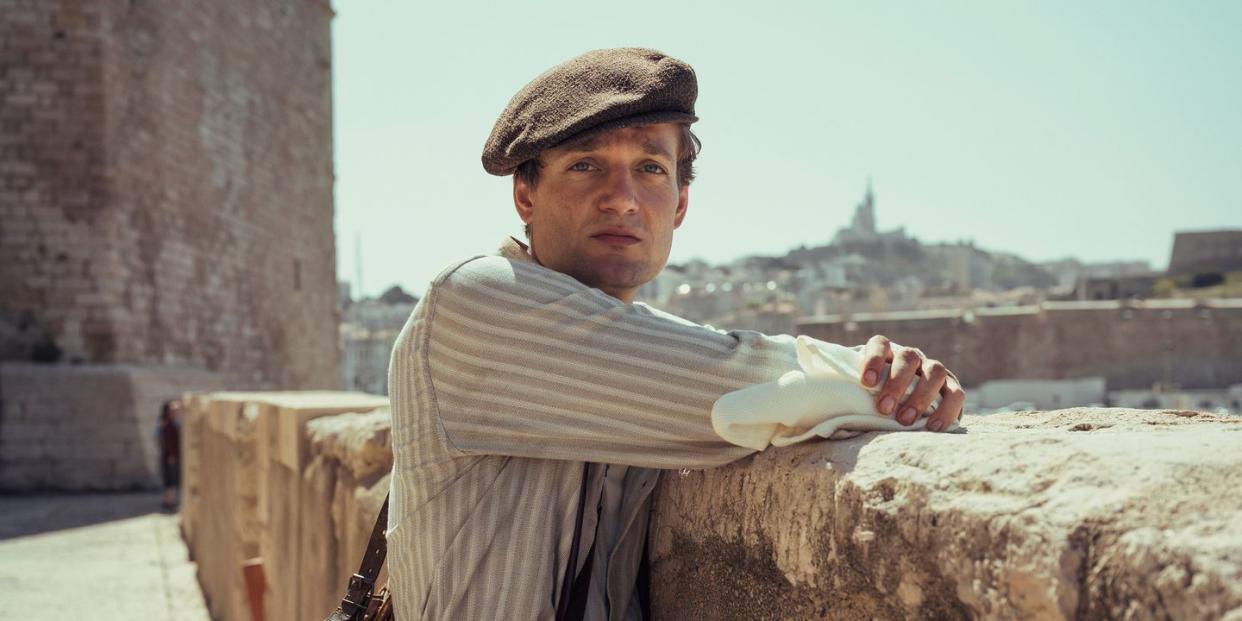
- Oops!Something went wrong.Please try again later.
- Oops!Something went wrong.Please try again later.
"Hearst Magazines and Yahoo may earn commission or revenue on some items through these links."
The passion with which Lucas Englander speaks about Transatlantic, and playing Albert Hirschman, is evident.
"My life has changed because of this series," Englander, an Austrian actor, tells me over Zoom from a friend's apartment in Paris. He has previously appeared in small parts in Catherine the Great and The Witcher, but this is his first leading role on TV. Englander threw himself into playing Hirschman, a real life German Jewish refugee who worked with Varian Fry (played by Cory Michael Smith) and the Emergency Rescue Committee to help many escape occupied France. He considered enlisting in the army after wrapping, so inspired by the real life Albert Hirschman's hunger to help others. He's also reconnected with his family's heritage, particularly the story of his grandfather, Alois Englander.
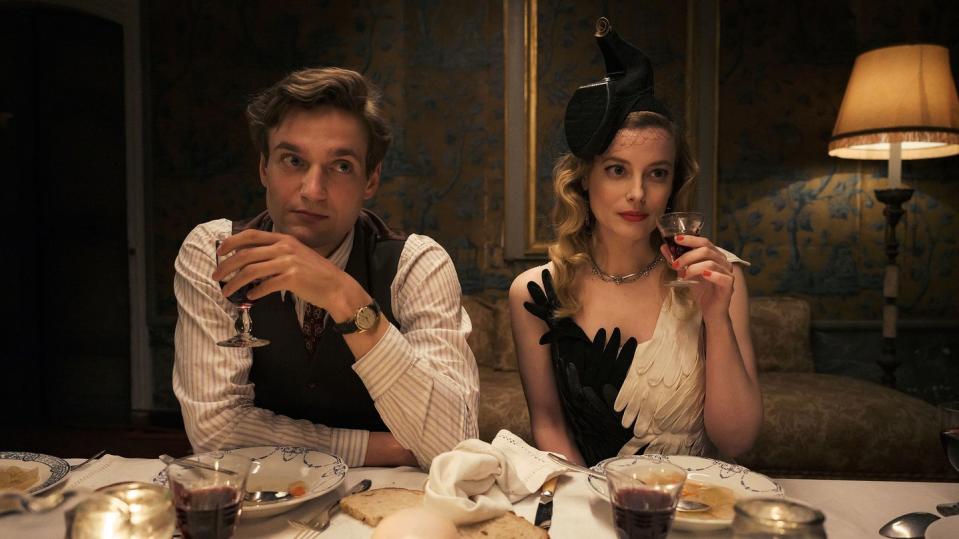
In Transatlantic, Englander's Albert falls for Mary Jayne Gold (Gillian Jacobs), and is torn between his sister's desire for him to save himself and his own need to help others. Englander describes Albert's mindset maybe in this time period as "I am burning and I don't know where to go." Over a long chat, we spoke about the presence of history, his grandfather's attempt to assassinate Hitler (yes, really), and what it means to bring this story to Netflix.
What drew you to Transatlantic in the first place?
I received a few sides [Ed. note: pages from a script] from my German agent about a casting where he was like, 'I think you want to look into that.' I was, at that moment, in a very, very stormy time in my life. I had no time and I looked at the sides—I couldn't, it was too harsh, too hard, too something that I didn't want to touch. After about ten days of having them, I looked at them and I learned them.
I do my lines very often with my mom and dad—it's not necessarily just because I need line readers to help me, because I can't memorize things if I just read them by myself, but it's really because that makes me be able to spend time with them.
I was doing the lines with my mom, and suddenly I started feeling very emotional. While doing the lines with my mom, I asked her about my grandfather's journey because I knew about it, but not really. I knew that we had a Jewish lineage, but it's been cut off, it's been transformed into no religion. Suddenly, while talking to her, I realized that what this Albert that we have created is living something that was very close to my grandfather's story. Like my grandfather, he became a refugee, and he left to the States.
Before he left to the States, he tried to assassinate Hitler. He left to the States in quite a funny journey—but I'll tell you another time.
Tell me everything!
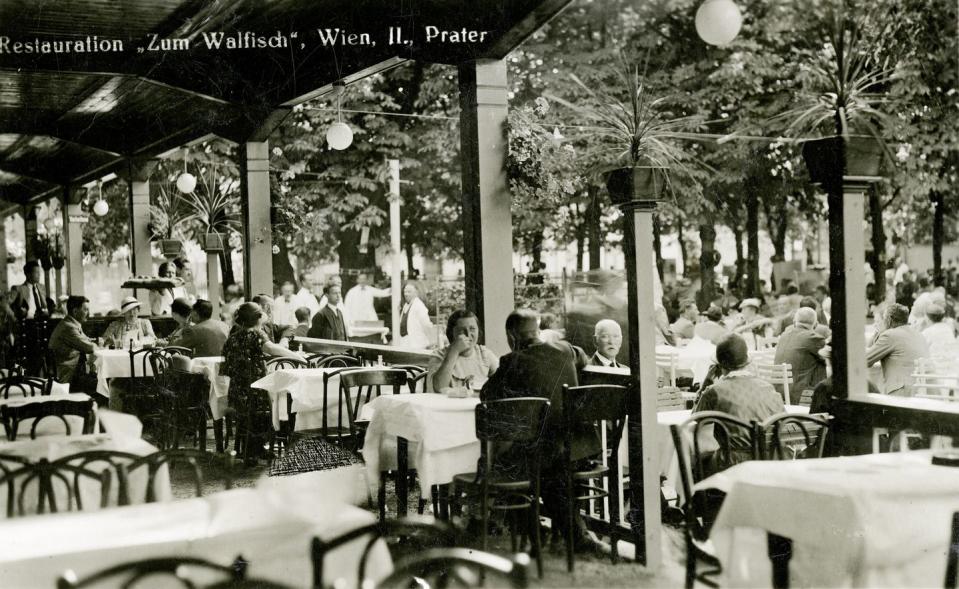
My grandfather was something called Prager Österreicher [Ed. note: Austrians with a strong connection to Prague], which were Austrians that lived between Prague and Vienna, very often tied to finance or other jobs of that sort. There were a lot of Jewish families that were Prager Österreicher. His family converted to Christianity at the turn of the 19th century because of persecution, but he was still seen as a quarter Jew. He had connections to resistance cells in Austria and in the Czech Republic. He found himself with revolvers, waiting at the street corner, having had the plans of Hitler's convoy—waiting for him to show up and knowing that he's gonna do this and he's willing to die for it. Hitler never came, he took another road!
He left, and before he left, he had a call with a friend from the States. His friend was like "Alois, we need rubbers! You need to get as many rubbers as possible. We need rubbers." And my granddad's like, ok, perfect. No problem. We got a lot of condoms. I'm gonna buy a lot of condoms. And so my granddad buys a lot of condoms, puts them all into a suitcase, leaves, makes this crazy journey—Austria, Czech Republic, Poland, Switzerland, somehow, over Russia, China to Japan. Arrives in L.A. meets his friend and is like, "There you go. We're gonna make a big business." His friend is like, "What the freaking hell is that?" And he's like the "condoms" and the guy is like, "rubbers—we need rubbers, pencil rubbers!"
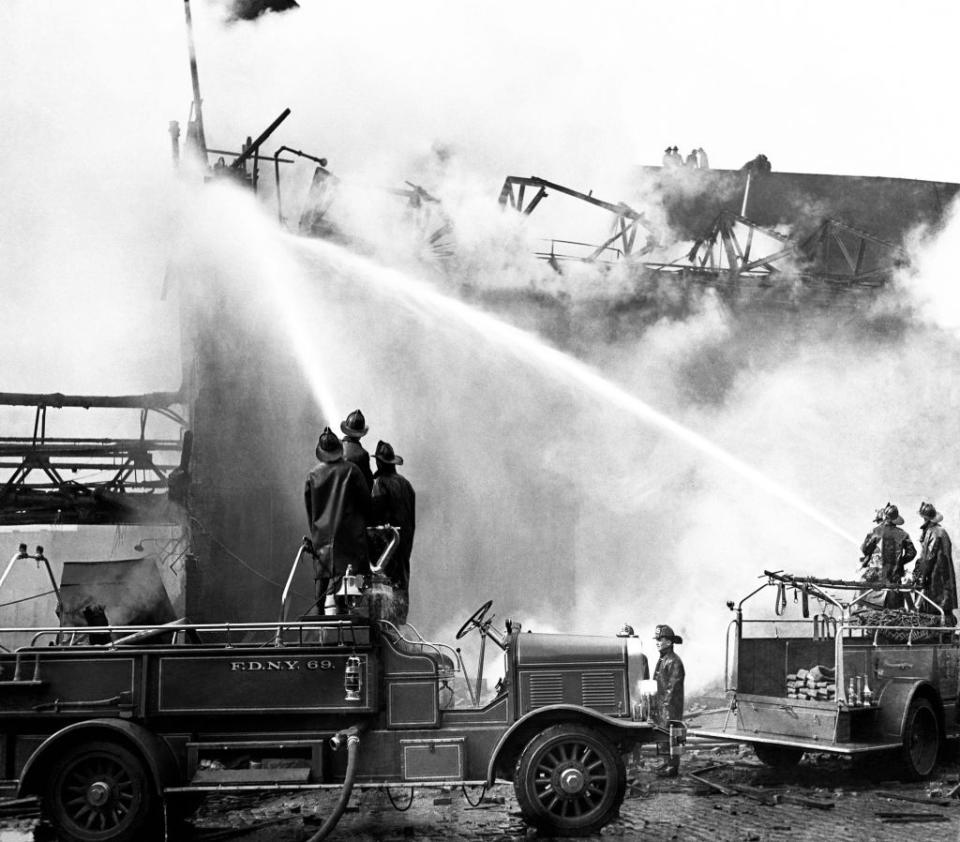
So he arrived in the States, he worked as a firefighter for the New York Fire Department. He wanted to go back to war, but he couldn't because he had flat feet. He worked for a rescue organization that helped Austrian refugees cross the channel. All this suddenly exploded inside of me as I spoke to my mom.
I did the audition and while I did the audition, I just couldn't stop crying. Between the takes, I just really needed a lot of time to do them, because suddenly I felt my story, my family's story—well, one side of it. I am also Austrian. My father's side have also served in the war on the other side, while my mother's side escaped. To be allowed to understand this, and to be allowed to understand also this place of why it is no more, to understand what a certain sense of persecution can do, and can eliminate, extinguish, delete from history. Made me just... made me feel very warm about this project.
What was it like working on a period drama that felt so relevant to current events?
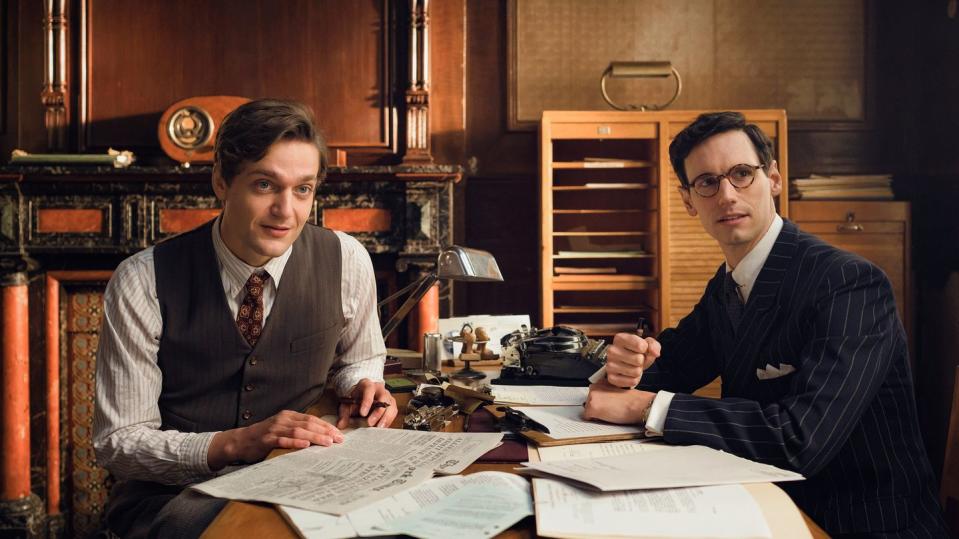
It felt like the project influenced my behavior in the real world, to the degree where it became a little dangerous—because the Albert we are telling is not the real Albert Hirschman, right? He's somebody who's put together from like Albert Hirschman, other influences like Justus Rosenberg, Charles Fawcett, influences of people who were all part of the ERC and, he's also representing, I find, this certain form of almost post-burnout need to do and trying to grab on to every new energy,
It opened up inside of me, this place of, I was sure that after the show, I'm going to go to the Austrian military. I'm gonna do my service. I'm going to join some kind of forces or I'm going to at least know that if an attack happens on European soil, that I can defend and I know what to do. This idea, it hasn't left me.
But obviously, I've also understood: I'm not Albert, I'm more one of the artists. And this is my power, and I should not forget the power of that—as much as I enjoy putting weight on to my shoulders and believing that I'm never doing enough in all this, I should also understand that it's OK to be a voice through my work, be it as an actor or be it as other forms of art that I'm finding.
What was it like filming in Marseille where these events actually took place? Did it connect you more to the history? What was it like for the cast to be on location like that?
My own process of going into characters that is coming to me recently is something that is very fluid. I do take on certain patterns of lifestyle that these characters have. Albert was somebody who was very much out and about in the city, and was connecting to various dodgy things—be it mafia, prostitution, or just street life and gangs. There was a part of me that opened up to this thing of Marseille as well, where I lived a certain kind of Albert lifestyle, to a certain degree, not in any way that was too edgy, but in a way where where I feel like I connected to the city through Albert.
Marseille's a port, you have a vibrance of cultures there that live with an authentic kind of conversation and therefore also a certain sense of brutality. It is incredible to experience, and something that I could relate to very much because it. I grew up in Vienna, and part of my teenage years I spent with a certain group of people where brutality was the case. Marseille felt normal.
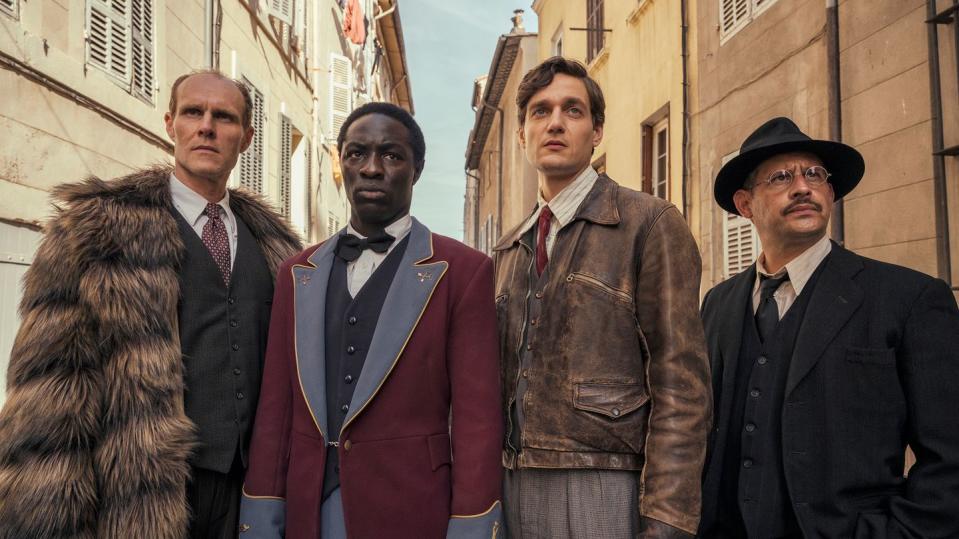
What was it like to work with such an international cast?
I was honestly a little intimidated by the fact that I'm in a leading role next to American actors who are not only known, but who are doing admirable work. Maybe that was also Albert as well, right? That was a mixture as well. This part of, I'm nobody but I'm being seen and I'm on the same level. Albert forced me to be on the same level.
There is this disparity still happening; you're more important when you're an American actor—it's just a strange thing and I think we're getting past it. But because I'm young and because I obviously also have dreams of certain projects in the States, I definitely felt this place with a certain kind strange respect that wasn't necessarily truthful. I'm this Austrian kid for whom this is the biggest project so far. And I'm like, I need everything. I want to bite into everything.
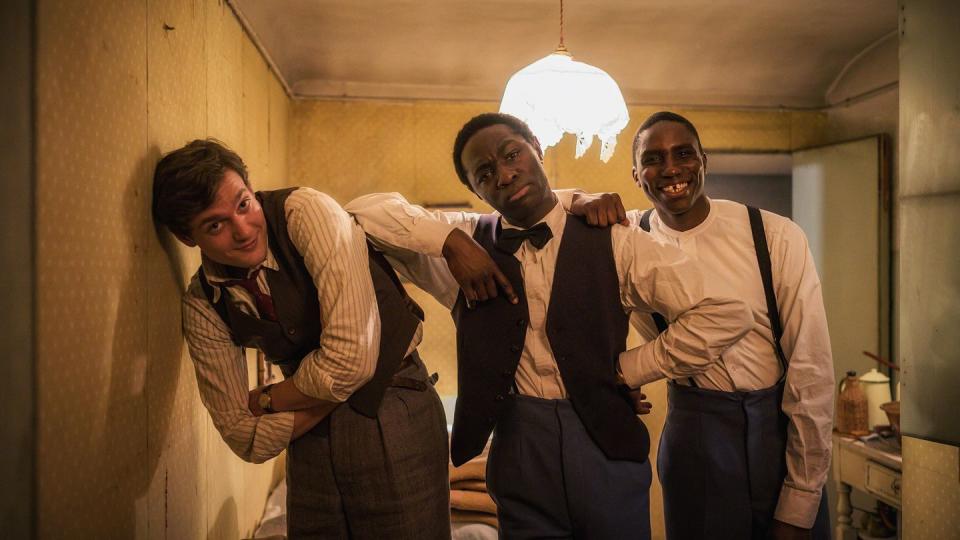
Apart from that, it was easy because we were a gang. We really became friends, and Ralph [Amoussou] is now one of my closest friends in France.
What does it mean to bring this story to a global platform like Netflix? What do you hope people learn? What did you learn?
I learned everything about it. Everything I learned, I learned through this process. I did not know anything about this story before and to be able to be given that gift, already, oh my God, incredible. My life has changed because of the series—because of knowledge.
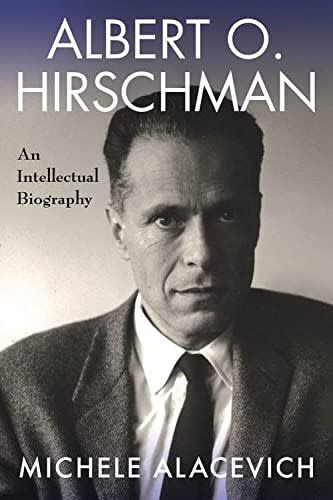
Albert O. Hirschman: An Intellectual Biography
$26.00
amazon.com
You're allowed to act, you're allowed to act on things. It doesn't matter if you fail, you try it, you go for it. If it's dangerous, don't fear away from it just because it's dangerous, you gotta go for it, you gotta do it.
Albert has this sentence that he wrote in one of his books. He wrote, "full and complete knowledge is not a necessary precondition for action." I think it's so beautiful and I think that the thing that they have created, the ERC, it's collective force. It's people from all different paths of life being together, accepting each other. In a world where we're becoming very individualist, I think the ERC is a shining star. They were people from everywhere, they were refugees, they were rich people, they were just Americans who were like, what the fuck is this? They were people in the consulate—I mean, there was one person in the consulate.
All these little parts that work together, that's the magic. To dare to make that call, to dare to do these things and not to be afraid of action, but doing it together and not making it about yourself. None of those people made it about themselves.
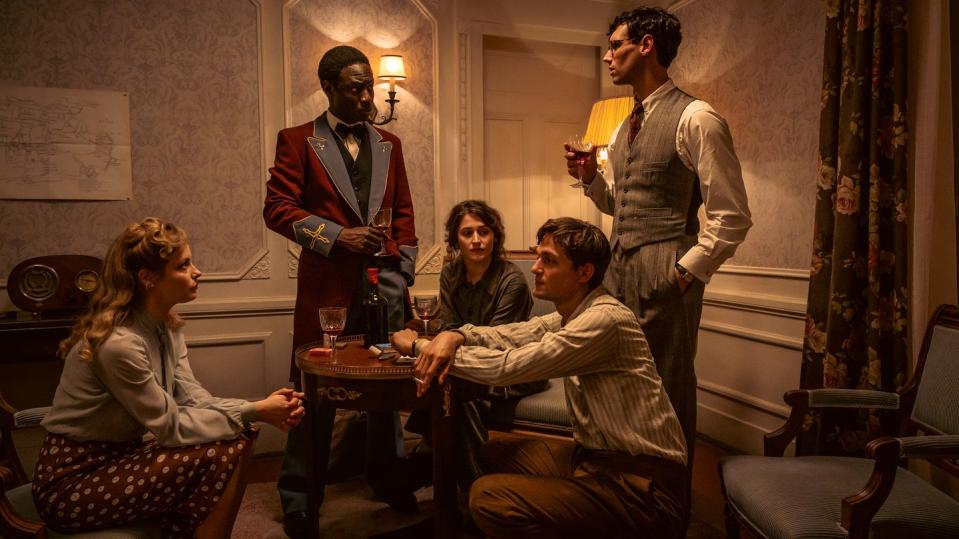
It sounds like Albert and this story has really lingered with you since filming.
I cannot think of a more important turning point of my life. I'm really not a perfect person in any way, but to know that that's okay, and to see people succeed in doing things together because they really sat down and they were like, we're gonna do this. That's my dream.
You Might Also Like

